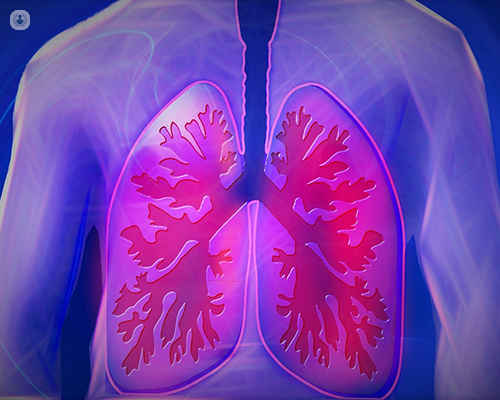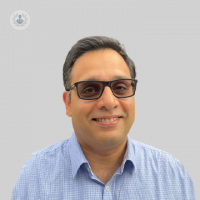What are the signs of a COPD flare-up?
Written in association with:In this article below, skilled, trusted, and highly regarded respiratory and sleep physician, Dr Sandip Banerjee, details what chronic obstructive pulmonary disease is, what the related symptoms are, and tells us when medical attention should be sought for the condition.

What exactly is chronic obstructive pulmonary disease?
Chronic obstructive pulmonary disease (COPD) is a long-term condition that causes inflammation in the lungs, damaged lung tissue, and a narrowing of the airways, making breathing difficult. COPD is a common condition that mainly affects middle-aged or older adults who smoke.
Many people do not realise they have it. The breathing problems tend to get gradually worse over time and can limit one's normal activities.
What are the associated symptoms?
The symptoms of COPD are breathlessness and chronic cough, with or without phlegm. Fatigue, anorexia, and weight loss can also occur over time.
A key characteristic of the condition is periods of worsening symptoms, known as exacerbations. This can be triggered by infections or exposure to high amounts of air pollution.
The most common conditions that occur alongside COPD include heart disease, anxiety and depression, osteoporosis, gastro-oesophageal reflux, skeletal muscle dysfunction, anaemia, lung cancer, diabetes, and metabolic syndrome.
What causes COPD?
COPD is caused by factors that trigger inflammation in the lungs, such as tobacco smoke, occupational exposure to dust, chemicals, vapours and airborne pollutants.
When should I seek medical attention?
Chronic obstructive pulmonary disease (COPD) is usually diagnosed after a consultation with your GP, as well as breathing tests. If you are concerned about the health of your lungs and have persistent symptoms that could be COPD, particularly if you are over 35 and smoke or used to smoke, see your doctor as soon as you can.
Being diagnosed early means you will receive appropriate treatment, advice and help to stop or slow the progression of COPD. Your doctor will also check how well your lungs are working with a lung function test called a spirometry.
Does this condition require immediate treatment? What does treatment for COPD involve?
The damage to the lungs caused by COPD is permanent, but treatment can help slow down the progression of the condition. Stopping smoking can help significantly.
What are the signs of a flare-up?
It’s normal for your COPD symptoms to vary a bit from day to day. However, if your symptoms start to worsen for two or more days, this is a flare-up (an acute exacerbation).
Signs of a flare-up include feeling a lot more breathless than usual, you are coughing more, you are producing more phlegm (mucus), and your phlegm (mucus) changes colour or gets stickier.
To book a consultation with Dr Sandip Banerjee, simply head on over to his Top Doctors profile today.



